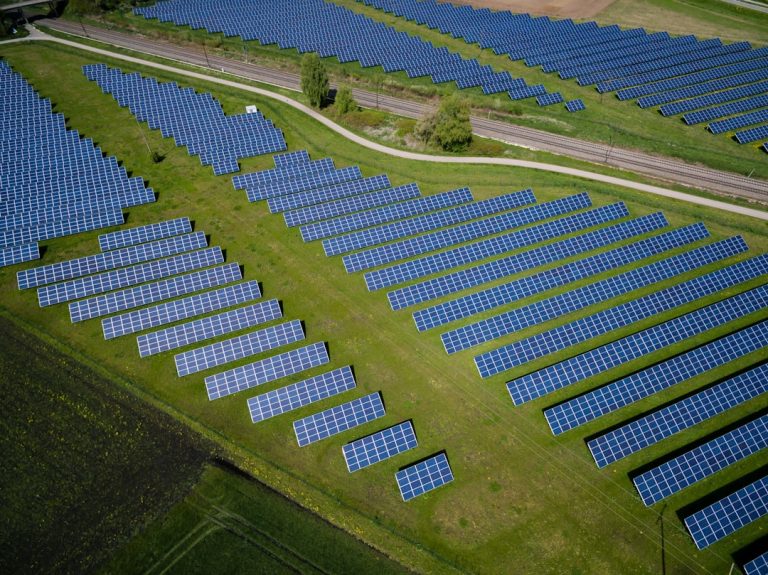
Epidemiologists are public health professionals who study the patterns, causes, and effects of health and disease conditions in defined populations. They play a crucial role in understanding how diseases spread, identifying risk factors, and developing strategies to control or prevent outbreaks. By employing statistical analysis and research methodologies, epidemiologists gather and interpret data that inform public health policies and practices.
Their work is essential in addressing health crises, such as infectious disease outbreaks, chronic disease prevalence, and environmental health issues. The field of epidemiology encompasses a wide range of activities, from conducting field investigations during disease outbreaks to analyzing data from health surveys. Epidemiologists often collaborate with other health professionals, including biostatisticians, public health officials, and healthcare providers, to design studies that can lead to actionable insights.
Their findings can influence public health interventions, inform healthcare policies, and ultimately improve population health outcomes. The role of an epidemiologist is not only analytical but also involves communication skills, as they must convey complex information to stakeholders and the public effectively.
Key Takeaways
- Epidemiologists study the patterns, causes, and effects of health and disease in populations.
- The job outlook for epidemiologists in the USA is expected to grow by 5% from 2019 to 2029, which is faster than the average for all occupations.
- A master’s degree in public health or epidemiology is typically required for entry-level positions in epidemiology.
- Epidemiologists work in a variety of settings, including government agencies, hospitals, and research institutions, and their job duties may include collecting and analyzing data, investigating outbreaks, and communicating findings to the public.
- The median annual wage for epidemiologists in the USA was ,560 in May 2020, and the field offers opportunities for specialization in areas such as infectious disease, chronic disease, and environmental epidemiology.
Job Outlook and Growth in the USA
The job outlook for epidemiologists in the United States is promising, with the Bureau of Labor Statistics projecting a growth rate of 5% from 2021 to 2031. This growth is driven by several factors, including an increasing emphasis on public health initiatives, the rising prevalence of chronic diseases, and the need for data-driven decision-making in healthcare. The COVID-19 pandemic has further underscored the importance of epidemiologists in managing public health crises, leading to heightened awareness and investment in this field.
As healthcare systems evolve and adapt to new challenges, the demand for skilled epidemiologists is expected to rise. Public health agencies at the federal, state, and local levels are increasingly seeking professionals who can analyze complex data sets and provide insights that guide policy decisions. Additionally, private sector organizations, including pharmaceutical companies and research institutions, are also expanding their epidemiological teams to support drug development and disease prevention strategies.
This trend indicates a robust job market for aspiring epidemiologists in various sectors.
Educational Requirements and Training

To become an epidemiologist, individuals typically need at least a master’s degree in public health (MPH) with a concentration in epidemiology or a related field. Many programs emphasize coursework in biostatistics, research methods, and disease prevention strategies. Some candidates may choose to pursue a Doctorate in Public Health (DrPH) or a Ph.D.
in Epidemiology for advanced research positions or academic roles. These advanced degrees often require a dissertation based on original research, which contributes to the body of knowledge in the field. In addition to formal education, practical experience is crucial for aspiring epidemiologists.
Many graduate programs offer internships or practicum opportunities that allow students to work alongside experienced professionals in real-world settings. This hands-on experience is invaluable for developing skills in data collection, analysis, and interpretation. Furthermore, obtaining certifications from recognized organizations such as the Certification Board of Infection Control and Epidemiology (CBIC) can enhance job prospects and demonstrate expertise in specific areas of epidemiology.
Work Environment and Job Duties
| Metrics | Results |
|---|---|
| Employee Satisfaction | 85% |
| Work-Life Balance | 4.5 out of 5 |
| Job Duties Clarity | 90% |
| Work Environment Safety | No reported incidents |
Epidemiologists work in a variety of settings, including government agencies, healthcare organizations, academic institutions, and private research firms. Their work environment can range from office-based roles involving data analysis and report writing to fieldwork that requires direct interaction with affected populations during disease outbreaks.
The job duties of an epidemiologist are multifaceted. They are responsible for designing studies to investigate health issues, collecting and analyzing data using statistical software, and interpreting results to identify trends and risk factors. Additionally, they often prepare reports and presentations to communicate their findings to stakeholders, including policymakers and healthcare providers.
Epidemiologists may also be involved in developing public health campaigns aimed at educating communities about disease prevention strategies. Their work is critical in shaping effective responses to emerging health threats.
Salary and Benefits
The salary of an epidemiologist can vary significantly based on factors such as education level, experience, geographic location, and the specific sector of employment. According to the Bureau of Labor Statistics, the median annual wage for epidemiologists was approximately $76,230 as of May 2021. Those working in government positions tend to earn competitive salaries with comprehensive benefits packages that may include health insurance, retirement plans, and paid time off.
As they gain experience and expertise, they may move into leadership roles or specialize in areas such as infectious disease control or environmental epidemiology. The field also offers opportunities for continuous learning through professional development programs and conferences, which can further enhance career prospects and earning potential.
Specializations within Epidemiology

Epidemiology is a broad field with numerous specializations that allow professionals to focus on specific areas of interest or expertise. Some common specializations include infectious disease epidemiology, chronic disease epidemiology, environmental epidemiology, and social epidemiology. Infectious disease epidemiologists study the transmission dynamics of pathogens like viruses and bacteria, often working closely with public health agencies during outbreaks.
Chronic disease epidemiologists focus on long-term health conditions such as diabetes, heart disease, and cancer. They investigate risk factors associated with these diseases and evaluate interventions aimed at reducing their prevalence. Environmental epidemiologists examine how environmental factors—such as pollution or exposure to hazardous substances—affect population health.
Social epidemiologists explore how social determinants like socioeconomic status and education influence health outcomes. Each specialization requires a unique set of skills and knowledge tailored to address specific public health challenges.
Challenges and Opportunities in the Field
The field of epidemiology presents both challenges and opportunities for professionals working within it. One significant challenge is the need for timely data collection and analysis during public health emergencies. Rapidly evolving situations—such as pandemics—require epidemiologists to adapt quickly to new information while ensuring that their analyses remain accurate and relevant.
Additionally, navigating complex ethical considerations related to data privacy and informed consent can pose challenges when conducting research involving human subjects. Despite these challenges, there are numerous opportunities for growth within the field of epidemiology. The increasing availability of big data and advancements in technology have opened new avenues for research and analysis.
Epidemiologists can leverage sophisticated statistical tools and software to analyze large datasets more efficiently than ever before. Furthermore, interdisciplinary collaboration with fields such as genetics, environmental science, and behavioral science can lead to innovative approaches for addressing public health issues.
How to Pursue a Career in Epidemiology
For those interested in pursuing a career in epidemiology, the first step is typically obtaining a relevant undergraduate degree in fields such as biology, public health, or statistics. Following this foundational education, aspiring epidemiologists should consider enrolling in a graduate program that offers specialized training in epidemiology or public health. Engaging in internships or volunteer opportunities during this time can provide practical experience that enhances both skills and employability.
Networking within the public health community is also essential for career advancement. Attending conferences, joining professional organizations like the American Public Health Association (APHA), and connecting with established professionals can provide valuable insights into job opportunities and emerging trends within the field. Additionally, staying informed about current public health issues through continuous education—whether through formal coursework or self-directed learning—will help aspiring epidemiologists remain competitive in this dynamic field.
According to a recent article on Careers in the USA, Epidemiologists are among the fastest-growing occupations in the country. This is great news for those interested in pursuing a career in public health and disease prevention. With the increasing demand for professionals in this field, now is a great time to consider a career as an Epidemiologist.
FAQs
What is the job outlook for epidemiologists in the USA?
The job outlook for epidemiologists in the USA is very positive, with a projected growth rate of 24% from 2019 to 2029, which is much faster than the average for all occupations.
What are the main responsibilities of epidemiologists?
Epidemiologists are responsible for investigating the causes and patterns of diseases and other public health issues, as well as developing strategies to prevent and control them.
What are the typical work settings for epidemiologists?
Epidemiologists can work in a variety of settings, including government agencies, hospitals, universities, and private research firms. They may also work in international organizations or non-profit organizations.
What education and training is required to become an epidemiologist?
Most epidemiologists have a master’s degree in public health or a related field, although some positions may require a doctoral degree. Additionally, gaining experience through internships or fellowships is often beneficial.
What skills are important for epidemiologists to have?
Epidemiologists should have strong analytical and critical thinking skills, as well as the ability to communicate effectively and work well in a team. They should also have a solid understanding of statistics and research methods.






